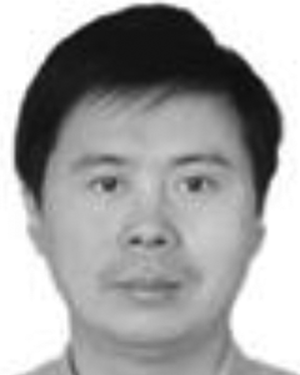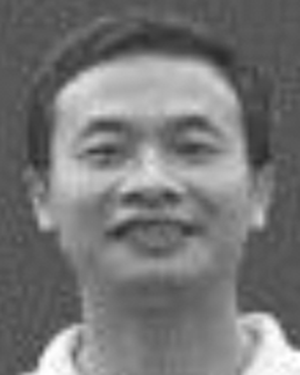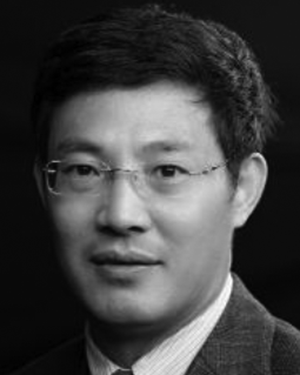Abstract:
Teachers' online discussion text data shed light on their reflective thinking. With the growing scale of text data, the traditional way of manual coding, however, has bee...Show MoreMetadata
Abstract:
Teachers' online discussion text data shed light on their reflective thinking. With the growing scale of text data, the traditional way of manual coding, however, has been challenged. In order to process the large-scale unstructured text data, it is necessary to integrate the inductive content analysis method and educational data mining techniques. An inductive content analysis on samples taken from 17,624 posts was implemented and the categories of teachers' reflective thinking were obtained. Based on the results of inductive content analysis, we implemented a single-label text classification algorithm to classify the sample data. Then, we applied the trained classification model on a large-scale and unexplored online discussion text data set and two types of visualizations of the results were provided. By using the categories gained from inductive content analysis to create a radar map, teachers' reflection level was represented. In addition, a cumulative adjacency matrix was created to characterize the evolution of teachers' reflective thinking. This study could partly explain how teachers reflected in online professional learning environments and brought awareness to educational policy makers, teacher training managers, and education researchers.
Published in: IEEE Transactions on Learning Technologies ( Volume: 11, Issue: 2, 01 April-June 2018)
Funding Agency:

Central China Normal University, Wuhan, Hubei, CN
Qingtang Liu received the PhD degree in communication and information
system from the Huazhong University of Science and Technology, Wuhan, China, in 2005. He is currently a chair
professor at the Central China Normal University, Wuhan, China. In recent years, he has published more than 30
academic papers in SCI and SSCI journals such as the Computers and Education, and
Knowledge-Based Systems. His res...Show More
Qingtang Liu received the PhD degree in communication and information
system from the Huazhong University of Science and Technology, Wuhan, China, in 2005. He is currently a chair
professor at the Central China Normal University, Wuhan, China. In recent years, he has published more than 30
academic papers in SCI and SSCI journals such as the Computers and Education, and
Knowledge-Based Systems. His res...View more

Central China Normal University, Wuhan, Hubei, CN
Si Zhang received the master's degree in educational technology
from Hunan Normal University, Changsha, China, in 2012. He is currently working toward the doctoral degree in
educational technology at the Central China Normal University, Wuhan, China. He is an assistant professor in the
Modern Education Technology Center, Hunan First Normal University, China. His main areas of interest include
technolog...Show More
Si Zhang received the master's degree in educational technology
from Hunan Normal University, Changsha, China, in 2012. He is currently working toward the doctoral degree in
educational technology at the Central China Normal University, Wuhan, China. He is an assistant professor in the
Modern Education Technology Center, Hunan First Normal University, China. His main areas of interest include
technolog...View more

Nanyang Technological University, Singapore, Singapore, SG
Qiyun Wang received the master's degree in educational
technology from East China Normal University, Shanghai, China, in 1993 and the PhD degree from University of Twente,
the Netherlands, in 2001. He is an associate professor of the Academic Group of Learning Science and Technologies,
National Institute of Education (Singapore). In recent years, he has published more than 10 academic papers in SSCI
jo...Show More
Qiyun Wang received the master's degree in educational
technology from East China Normal University, Shanghai, China, in 1993 and the PhD degree from University of Twente,
the Netherlands, in 2001. He is an associate professor of the Academic Group of Learning Science and Technologies,
National Institute of Education (Singapore). In recent years, he has published more than 10 academic papers in SSCI
jo...View more

Nanyang Technological University, Singapore, Singapore, SG
Wenli Chen is an associate professor with the Learning Sciences and
Technology (LST) Academic Group, National Institute of Education (NIE), Nanyang Technological University (NTU). She is
the editor-in-chief for the Journal of Computers in Education, the associate editor for the
Research and Practice in Technology Enhanced Learning, and the advisory editor for the Asia Pacific
Education Review. She has ...Show More
Wenli Chen is an associate professor with the Learning Sciences and
Technology (LST) Academic Group, National Institute of Education (NIE), Nanyang Technological University (NTU). She is
the editor-in-chief for the Journal of Computers in Education, the associate editor for the
Research and Practice in Technology Enhanced Learning, and the advisory editor for the Asia Pacific
Education Review. She has ...View more

Central China Normal University, Wuhan, Hubei, CN
Qingtang Liu received the PhD degree in communication and information
system from the Huazhong University of Science and Technology, Wuhan, China, in 2005. He is currently a chair
professor at the Central China Normal University, Wuhan, China. In recent years, he has published more than 30
academic papers in SCI and SSCI journals such as the Computers and Education, and
Knowledge-Based Systems. His research interests include adaptive learning, learning analysis, and artificial
intelligence in education.
Qingtang Liu received the PhD degree in communication and information
system from the Huazhong University of Science and Technology, Wuhan, China, in 2005. He is currently a chair
professor at the Central China Normal University, Wuhan, China. In recent years, he has published more than 30
academic papers in SCI and SSCI journals such as the Computers and Education, and
Knowledge-Based Systems. His research interests include adaptive learning, learning analysis, and artificial
intelligence in education.View more

Central China Normal University, Wuhan, Hubei, CN
Si Zhang received the master's degree in educational technology
from Hunan Normal University, Changsha, China, in 2012. He is currently working toward the doctoral degree in
educational technology at the Central China Normal University, Wuhan, China. He is an assistant professor in the
Modern Education Technology Center, Hunan First Normal University, China. His main areas of interest include
technology enhanced collavorative learning, mobile learning, and learning analysis. He has published more than 10
academic papers in SCI and SSCI journals such as Computers and Education and Universal Access
in the Information Society.
Si Zhang received the master's degree in educational technology
from Hunan Normal University, Changsha, China, in 2012. He is currently working toward the doctoral degree in
educational technology at the Central China Normal University, Wuhan, China. He is an assistant professor in the
Modern Education Technology Center, Hunan First Normal University, China. His main areas of interest include
technology enhanced collavorative learning, mobile learning, and learning analysis. He has published more than 10
academic papers in SCI and SSCI journals such as Computers and Education and Universal Access
in the Information Society.View more

Nanyang Technological University, Singapore, Singapore, SG
Qiyun Wang received the master's degree in educational
technology from East China Normal University, Shanghai, China, in 1993 and the PhD degree from University of Twente,
the Netherlands, in 2001. He is an associate professor of the Academic Group of Learning Science and Technologies,
National Institute of Education (Singapore). In recent years, he has published more than 10 academic papers in SSCI
journals such as Computers and Education and Educational Technology Research and Development
, and more than 50 papers in other peer-reviewed journals. He is now the editor-in-chief of the
International Journal of Social Media and Interactive Learning Environments and an associate editor of the
International Journal of Continuing Engineering and Life-Long Learning. His research interests include
web 2.0 tools for teaching and learning, social media for learning, educational design research, online learning, and
technology-enhanced learning environment design.
Qiyun Wang received the master's degree in educational
technology from East China Normal University, Shanghai, China, in 1993 and the PhD degree from University of Twente,
the Netherlands, in 2001. He is an associate professor of the Academic Group of Learning Science and Technologies,
National Institute of Education (Singapore). In recent years, he has published more than 10 academic papers in SSCI
journals such as Computers and Education and Educational Technology Research and Development
, and more than 50 papers in other peer-reviewed journals. He is now the editor-in-chief of the
International Journal of Social Media and Interactive Learning Environments and an associate editor of the
International Journal of Continuing Engineering and Life-Long Learning. His research interests include
web 2.0 tools for teaching and learning, social media for learning, educational design research, online learning, and
technology-enhanced learning environment design.View more

Nanyang Technological University, Singapore, Singapore, SG
Wenli Chen is an associate professor with the Learning Sciences and
Technology (LST) Academic Group, National Institute of Education (NIE), Nanyang Technological University (NTU). She is
the editor-in-chief for the Journal of Computers in Education, the associate editor for the
Research and Practice in Technology Enhanced Learning, and the advisory editor for the Asia Pacific
Education Review. She has published more than 60 papers on international peer-reviewed journals. She has won
more than 10 Best Paper Awards in international conferences. Her research interests include computer supported
collaborative learning, mobile learning, and ubiquitous learning environment.
Wenli Chen is an associate professor with the Learning Sciences and
Technology (LST) Academic Group, National Institute of Education (NIE), Nanyang Technological University (NTU). She is
the editor-in-chief for the Journal of Computers in Education, the associate editor for the
Research and Practice in Technology Enhanced Learning, and the advisory editor for the Asia Pacific
Education Review. She has published more than 60 papers on international peer-reviewed journals. She has won
more than 10 Best Paper Awards in international conferences. Her research interests include computer supported
collaborative learning, mobile learning, and ubiquitous learning environment.View more


